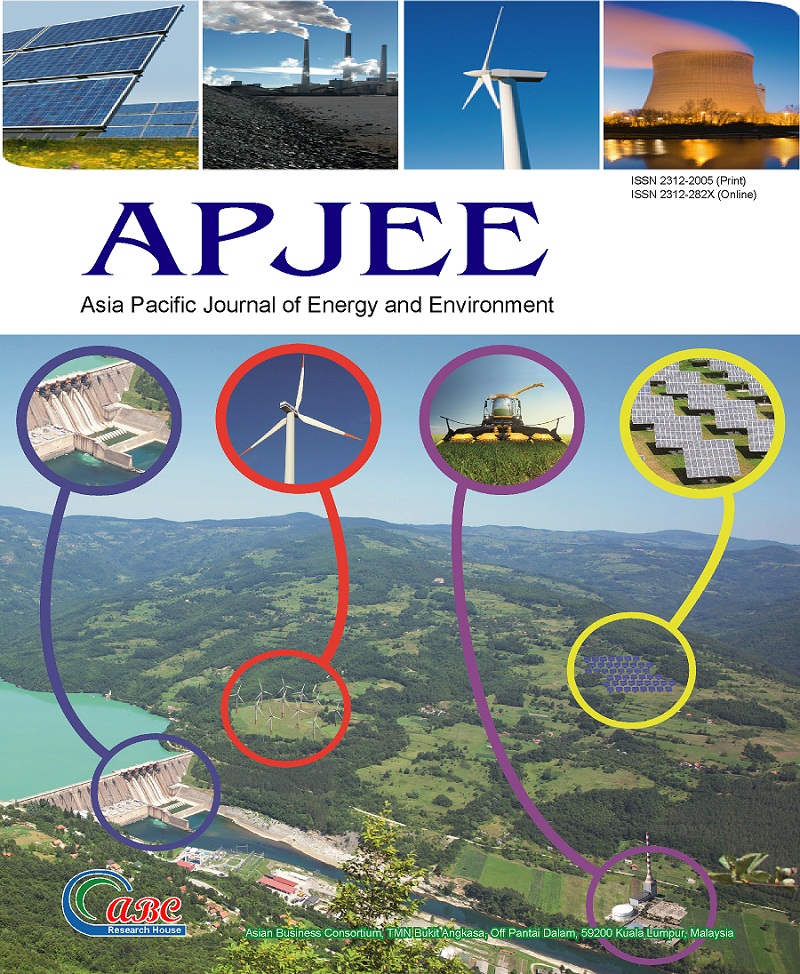Bioprocess Automation with Robotics: Streamlining Microbiology for Biotech Industry
DOI:
https://doi.org/10.18034/apjee.v9i2.748Keywords:
Bioprocess Automation, Robotics in Microbiology, Biotech Industry Innovation, Microbial Process Optimization, Automated BioprocessingAbstract
One key tactic for optimizing microbiology in the biotech sector is the combination of robotics and bioprocess automation. This research aims to improve scalability, accuracy, and efficiency in microbial bioprocessing by investigating the effects of automated technologies. The study uses a secondary data-based review methodology to look at present trends, technological developments, and prospects in bioprocess automation with robotics. Important discoveries demonstrate notable scalability, accuracy, and efficiency gains fueled by higher throughput and sophisticated AI algorithms. However, obstacles to widespread adoption include expensive initial investment costs and the requirement for specialized knowledge. The policy implications emphasize the significance of focused investments, incentives, and teamwork in removing obstacles and realizing the full potential of robotics-assisted bioprocess automation in the biotech sector, spurring innovation and advancing sustainability.
Downloads
References
Anumandla, S. K. R. (2018). AI-enabled Decision Support Systems and Reciprocal Symmetry: Empowering Managers for Better Business Outcomes. International Journal of Reciprocal Symmetry and Theoretical Physics, 5, 33-41. https://upright.pub/index.php/ijrstp/article/view/129
Claßen, J., Aupert, F., Reardon, K. F., Solle, D., Scheper, T. (2017). Spectroscopic Sensors for In-line Bioprocess Monitoring in Research and Pharmaceutical Industrial Application. Analytical and Bioanalytical Chemistry, 409(3), 651-666. https://doi.org/10.1007/s00216-016-0068-x DOI: https://doi.org/10.1007/s00216-016-0068-x
Dhameliya, N., Mullangi, K., Shajahan, M. A., Sandu, A. K., & Khair, M. A. (2020). Blockchain-Integrated HR Analytics for Improved Employee Management. ABC Journal of Advanced Research, 9(2), 127-140. https://doi.org/10.18034/abcjar.v9i2.738 DOI: https://doi.org/10.18034/abcjar.v9i2.738
Greco, G. R., Cinquegrani, M. (2016). Firms Plunge into the Sea. Marine Biotechnology Industry, a First Investigation. Frontiers in Marine Science, 2; 2015. https://doi.org/10.3389/fmars.2015.00124 DOI: https://doi.org/10.3389/fmars.2015.00124
Heins, A-L., Weuster-Botz, D. (2018). Population Heterogeneity in Microbial Bioprocesses: Origin, Analysis, Mechanisms, and Future Perspectives. Bioprocess and Biosystems Engineering, 41(7), 889-916. https://doi.org/10.1007/s00449-018-1922-3 DOI: https://doi.org/10.1007/s00449-018-1922-3
Khair, M. A., Tejani, J. G., Sandu, A. K., & Shajahan, M. A. (2020). Trade Policies and Entrepreneurial Initiatives: A Nexus for India’s Global Market Integration. American Journal of Trade and Policy, 7(3), 107–114. https://doi.org/10.18034/ajtp.v7i3.706 DOI: https://doi.org/10.18034/ajtp.v7i3.706
Koehler, S., Dhameliya, N., Patel, B., & Anumandla, S. K. R. (2018). AI-Enhanced Cryptocurrency Trading Algorithm for Optimal Investment Strategies. Asian Accounting and Auditing Advancement, 9(1), 101–114. https://4ajournal.com/article/view/91
Maddula, S. S. (2018). The Impact of AI and Reciprocal Symmetry on Organizational Culture and Leadership in the Digital Economy. Engineering International, 6(2), 201–210. https://doi.org/10.18034/ei.v6i2.703 DOI: https://doi.org/10.18034/ei.v6i2.703
Maddula, S. S., Shajahan, M. A., & Sandu, A. K. (2019). From Data to Insights: Leveraging AI and Reciprocal Symmetry for Business Intelligence. Asian Journal of Applied Science and Engineering, 8(1), 73–84. https://doi.org/10.18034/ajase.v8i1.86 DOI: https://doi.org/10.18034/ajase.v8i1.86
Morschett, H., Wiechert, W., Oldiges, M. (2016). Automation of a Nile Red Staining Assay Enables High Throughput Quantification of Microalgal Lipid Production. Microbial Cell Factories, 15. https://doi.org/10.1186/s12934-016-0433-7 DOI: https://doi.org/10.1186/s12934-016-0433-7
Mullangi, K. (2017). Enhancing Financial Performance through AI-driven Predictive Analytics and Reciprocal Symmetry. Asian Accounting and Auditing Advancement, 8(1), 57–66. https://4ajournal.com/article/view/89
Mullangi, K., Maddula, S. S., Shajahan, M. A., & Sandu, A. K. (2018a). Artificial Intelligence, Reciprocal Symmetry, and Customer Relationship Management: A Paradigm Shift in Business. Asian Business Review, 8(3), 183–190. https://doi.org/10.18034/abr.v8i3.704 DOI: https://doi.org/10.18034/abr.v8i3.704
Mullangi, K., Yarlagadda, V. K., Dhameliya, N., & Rodriguez, M. (2018b). Integrating AI and Reciprocal Symmetry in Financial Management: A Pathway to Enhanced Decision-Making. International Journal of Reciprocal Symmetry and Theoretical Physics, 5, 42-52. https://upright.pub/index.php/ijrstp/article/view/134
Patel, B., Mullangi, K., Roberts, C., Dhameliya, N., & Maddula, S. S. (2019). Blockchain-Based Auditing Platform for Transparent Financial Transactions. Asian Accounting and Auditing Advancement, 10(1), 65–80. https://4ajournal.com/article/view/92
Pydipalli, R. (2018). Network-Based Approaches in Bioinformatics and Cheminformatics: Leveraging IT for Insights. ABC Journal of Advanced Research, 7(2), 139-150. https://doi.org/10.18034/abcjar.v7i2.743 DOI: https://doi.org/10.18034/abcjar.v7i2.743
Pydipalli, R., & Tejani, J. G. (2019). A Comparative Study of Rubber Polymerization Methods: Vulcanization vs. Thermoplastic Processing. Technology & Management Review, 4, 36-48. https://upright.pub/index.php/tmr/article/view/132
Pydipalli, R., Anumandla, S. K. R., Dhameliya, N., Thompson, C. R., Patel, B., Vennapusa, S. C. R., Sandu, A. K., & Shajahan, M. A. (2022). Reciprocal Symmetry and the Unified Theory of Elementary Particles: Bridging Quantum Mechanics and Relativity. International Journal of Reciprocal Symmetry and Theoretical Physics, 9, 1-9. https://upright.pub/index.php/ijrstp/article/view/138
Richardson, N., Pydipalli, R., Maddula, S. S., Anumandla, S. K. R., & Vamsi Krishna Yarlagadda. (2019). Role-Based Access Control in SAS Programming: Enhancing Security and Authorization. International Journal of Reciprocal Symmetry and Theoretical Physics, 6, 31-42. https://upright.pub/index.php/ijrstp/article/view/133
Rodriguez, M., Shajahan, M. A., Sandu, A. K., Maddula, S. S., & Mullangi, K. (2021). Emergence of Reciprocal Symmetry in String Theory: Towards a Unified Framework of Fundamental Forces. International Journal of Reciprocal Symmetry and Theoretical Physics, 8, 33-40. https://upright.pub/index.php/ijrstp/article/view/136
Rodriguez, M., Tejani, J. G., Pydipalli, R., & Patel, B. (2018). Bioinformatics Algorithms for Molecular Docking: IT and Chemistry Synergy. Asia Pacific Journal of Energy and Environment, 5(2), 113-122. https://doi.org/10.18034/apjee.v5i2.742 DOI: https://doi.org/10.18034/apjee.v5i2.742
Sachani, D. K., & Vennapusa, S. C. R. (2017). Destination Marketing Strategies: Promoting Southeast Asia as a Premier Tourism Hub. ABC Journal of Advanced Research, 6(2), 127-138. https://doi.org/10.18034/abcjar.v6i2.746 DOI: https://doi.org/10.18034/abcjar.v6i2.746
Sadowski, M. I., Grant, C., Fell, T. S. (2016). Harnessing QbD, Programming Languages, and Automation for Reproducible Biology. Trends in Biotechnology, 34(3), 214-227. https://doi.org/10.1016/j.tibtech.2015.11.006 DOI: https://doi.org/10.1016/j.tibtech.2015.11.006
Sandu, A. K. (2021). DevSecOps: Integrating Security into the DevOps Lifecycle for Enhanced Resilience. Technology & Management Review, 6, 1-19. https://upright.pub/index.php/tmr/article/view/131
Sandu, A. K. (2022). AI-Powered Predictive Maintenance for Industrial IoT Systems. Digitalization & Sustainability Review, 2(1), 1-14. https://upright.pub/index.php/dsr/article/view/139
Sandu, A. K., Surarapu, P., Khair, M. A., & Mahadasa, R. (2018). Massive MIMO: Revolutionizing Wireless Communication through Massive Antenna Arrays and Beamforming. International Journal of Reciprocal Symmetry and Theoretical Physics, 5, 22-32. https://upright.pub/index.php/ijrstp/article/view/125
Sawatzki, A., Sebastian, H., Narayanan, H., Haby, B., Krausch, N. (2018). Accelerated Bioprocess Development of Endopolygalacturonase-Production with Saccharomyces cerevisiae Using Multivariate Prediction in a 48 Mini-Bioreactor Automated Platform. Bioengineering, 5(4), 101. https://doi.org/10.3390/bioengineering5040101 DOI: https://doi.org/10.3390/bioengineering5040101
Shajahan, M. A. (2018). Fault Tolerance and Reliability in AUTOSAR Stack Development: Redundancy and Error Handling Strategies. Technology & Management Review, 3, 27-45. https://upright.pub/index.php/tmr/article/view/126
Shajahan, M. A. (2021). Next-Generation Automotive Electronics: Advancements in Electric Vehicle Powertrain Control. Digitalization & Sustainability Review, 1(1), 71-88. https://upright.pub/index.php/dsr/article/view/135
Shajahan, M. A., Richardson, N., Dhameliya, N., Patel, B., Anumandla, S. K. R., & Yarlagadda, V. K. (2019). AUTOSAR Classic vs. AUTOSAR Adaptive: A Comparative Analysis in Stack Development. Engineering International, 7(2), 161–178. https://doi.org/10.18034/ei.v7i2.711 DOI: https://doi.org/10.18034/ei.v7i2.711
Simutis, R., Lübbert, A. (2017). Hybrid Approach to State Estimation for Bioprocess Control. Bioengineering, 4(1). https://doi.org/10.3390/bioengineering4010021 DOI: https://doi.org/10.3390/bioengineering4010021
Tejani, J. G. (2017). Thermoplastic Elastomers: Emerging Trends and Applications in Rubber Manufacturing. Global Disclosure of Economics and Business, 6(2), 133-144. https://doi.org/10.18034/gdeb.v6i2.737 DOI: https://doi.org/10.18034/gdeb.v6i2.737
Tejani, J. G., Khair, M. A., & Koehler, S. (2021). Emerging Trends in Rubber Additives for Enhanced Performance and Sustainability. Digitalization & Sustainability Review, 1(1), 57-70. https://upright.pub/index.php/dsr/article/view/130
Totaro, M., Casini, B., Valentini, P., Miccoli, M., Lopalco, P. L. (2018). Assessing Natural Mineral Water Microbiology Quality in the Absence of Cultivable Pathogen Bacteria. Journal of Water and Health, 16(3), 425-434. https://doi.org/10.2166/wh.2018.183 DOI: https://doi.org/10.2166/wh.2018.183
Vennapusa, S. C. R., Fadziso, T., Sachani, D. K., Yarlagadda, V. K., & Anumandla, S. K. R. (2018). Cryptocurrency-Based Loyalty Programs for Enhanced Customer Engagement. Technology & Management Review, 3, 46-62. https://upright.pub/index.php/tmr/article/view/137
Yarlagadda, V. K., & Pydipalli, R. (2018). Secure Programming with SAS: Mitigating Risks and Protecting Data Integrity. Engineering International, 6(2), 211–222. https://doi.org/10.18034/ei.v6i2.709 DOI: https://doi.org/10.18034/ei.v6i2.709
Yerram, S. R., Mallipeddi, S. R., Varghese, A., & Sandu, A. K. (2019). Human-Centered Software Development: Integrating User Experience (UX) Design and Agile Methodologies for Enhanced Product Quality. Asian Journal of Humanity, Art and Literature, 6(2), 203-218. https://doi.org/10.18034/ajhal.v6i2.732 DOI: https://doi.org/10.18034/ajhal.v6i2.732
Ying, D., Patel, B., & Dhameliya, N. (2017). Managing Digital Transformation: The Role of Artificial Intelligence and Reciprocal Symmetry in Business. ABC Research Alert, 5(3), 67–77. https://doi.org/10.18034/ra.v5i3.659 DOI: https://doi.org/10.18034/ra.v5i3.659
Downloads
Published
Issue
Section
License
Copyright (c) 2022 Mohamed Ali Shajahan

This work is licensed under a Creative Commons Attribution-NonCommercial 4.0 International License.









